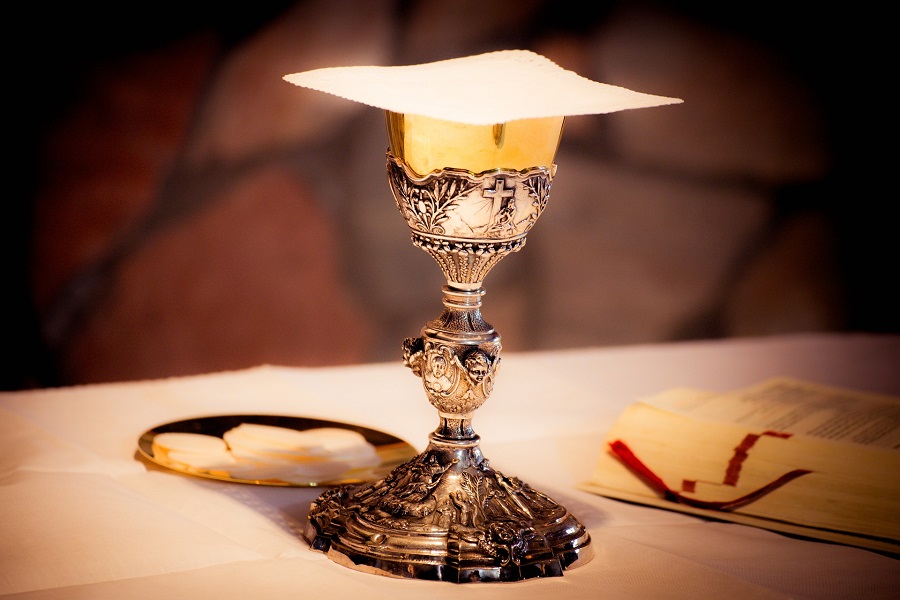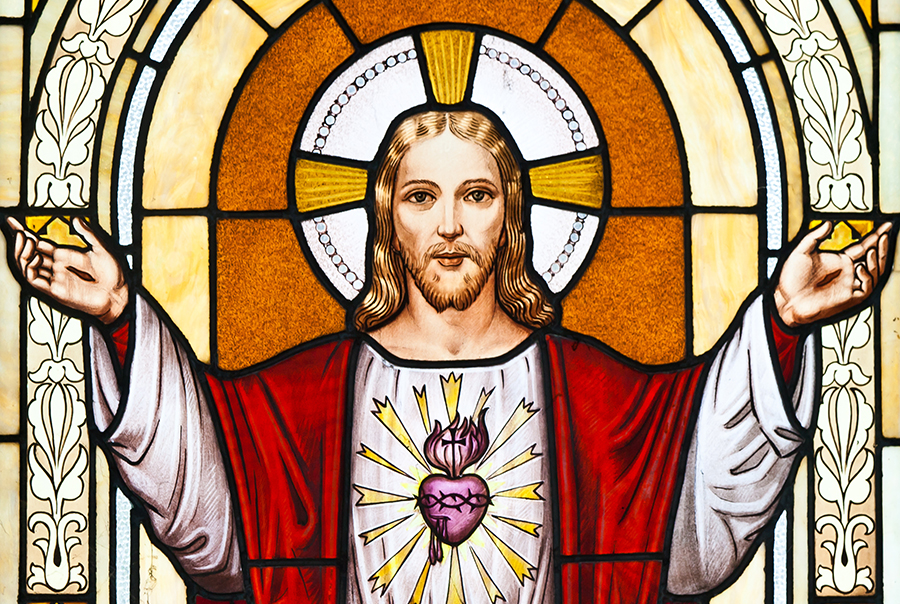
Communism/Socialism No Friend of Family or Religion
08-25-2024Weekly ReflectionFr. Leonard F. Villa“Religious socialism, Christian socialism, are contradictory terms; no one can be at the same time a good Catholic and a true socialist” Communism is intrinsically wrong. Pope Pius XI
READ MORENew York State Catholic Conference Urges ‘No’ Vote on Prop 1 This Fall
08-24-2024From the desk of Fr. Villa© The Good NewsRoomThe Catholic Conference represents the bishops of New York state in public policy matters.
READ MOREThe Ideology of Gender Harms Children: Defining Terms and Understanding the Issue
08-23-2024From the desk of Fr. Villa© Catholic Medical Association“Gender is a term that refers to the psychological and cultural characteristics associated with biological sex. It is a psychological concept… Gender identity refers to an individual’s awareness of being male or female, referred to as an individual’s ‘experienced gender’” (American College of Pediatricians, 2018).
READ MORE
The Meaning of the Lord’s Day and Its Frequent Violation
08-18-2024Weekly ReflectionFr. Leonard F. VillaSt Thomas Aquinas reminds us that religion has as its object the honor, reverence, and worship due to God. Religion is the chief of the moral virtues because its acts are directed immediately to God’s honor and glory, Do not be afraid to give your time to Christ. Yes, let us open our time to Christ, that he may cast light upon it and give it direction. He is the One who knows the secret of time and the secret of eternity, and he gives us “his day” as an ever new gift of his love.
READ MORE
Old hatreds of the Church alive and well in Paris
08-11-2024Weekly ReflectionFr. Leonard F. VillaWe don't live in a carefree society. Our lives are really part of a merciless struggle against infernal powers, all the more dangerous because they are invisible and all the more powerful because they effectively influence a certain number of people. The Word of God teaches us this through the mouth of Saint Paul: "We do not have to fight (only) against flesh and blood, but against the rulers of this dark world, against the evil spirits that are in the air" (Eph. 6:12).
READ MORE
The Church in the Stormy Seas of Heresy and Apostasy
08-04-2024Weekly ReflectionFr. Leonard F. VillaAnd, I rejoice to say, to one great mischief I have from the first opposed myself. For thirty, forty, fifty years I have resisted to the best of my powers the spirit of liberalism in religion….The Biglietto-Speech St John Henry Newman
Liberalism in religion is the doctrine that there is no positive truth in religion, but that one creed is as good as another, and this is the teaching which is gaining substance and force daily. It is inconsistent with any recognition of any religion, as true. It teaches that all are to be tolerated, for all are matters of opinion. Revealed religion is not a truth, but a sentiment and a taste; not an objective fact, not miraculous; and it is the right of each individual to make it say just what strikes his fancy….
READ MORE
The Meaning of Escape from an Assassin’s Bullet
07-28-2024Weekly ReflectionFr. Leonard F. VillaAt the checkout-line at Acme’s a worker asked was candidate Donald Trump a providential figure given his hair-breath escape from an assassin’s bullet? The quick answer is that everyone’s life, the length of one’s life is governed by God’s Providence. God is also the Lord of history and intervenes as He wills, according to His Providence. Did the check-out worker mean: is God using Donald Trump for a special task? Is he a providential figure for the U.S. and the world?
READ MORE
By the Blood that flowed from thee……
07-21-2024Weekly ReflectionVery Rev. Richard C. Wilson, VF, Pastor…one of the soldiers opened his side with a spear; and immediately blood and water flowed out. John 19:34
Leon Gautier famously defined Chivalry as “the Christian form of the military profession: the knight is the Christian soldier.” Precisely because the Germanic warrior ethos was Christianised, chivalry was more than a code of martial virtue. As Michael Warren Davis has pointed out, it became, so to speak, the “lay spirituality” of Medieval Europe….
READ MORE
The Papal Audience with Comics: On God and Jokers
07-14-2024Weekly ReflectionFr. Leonard F. Villa“I can laugh When things ain't funny A haha-happy-go-lucky me” Paul Evans 1960
He that dwelleth in heaven shall laugh them to scorn; the Lord shall have them in derision Psalm 2:4 Sung in Handel’s Messiah Part 2 (Tenor Recitative)
At the website of the famous Vatican commentator (Vaticanista), Sandro Magister there was a letter from a distinguished scholar of the Fathers of the Church, Leonardo Lugaresi, concerning the papal audience with comedians. Here it is edited:
READ MORE
Ruth Bader Ginsberg & the Planned-Parenthood Mentality
07-07-2024Weekly ReflectionFr. Leonard F. VillaMuch ink has been spilled about Ruth Bader Ginsberg as a model and heroine, especially for women, if not a “secular saint.” She was a fervent supporter of Planned Parenthood (originally called The Birth-Control League) and abortion despite Planned Parenthood’s racist past.
READ MORE
Hell, the Devil, Exorcisms
06-30-2024Weekly ReflectionFr. Leonard F. VillaIndeed, the Son of God was revealed to destroy the works of the devil. 1 John 3:8
Our contemporaries, including many Christians, reject the notion of hell as something incompatible with God’s love and mercy. In fact there have been those who have maintained that at the end even Satan will be reconciled to God, a theory called apocatastasis, meaning a restoration to the original state, that the Church has rejected as contrary to the teachings of the Faith.
READ MORE
A Funeral Mass is NOT a Celebration of the Life of the Deceased
06-23-2024Weekly ReflectionFr. Leonard F. VillaSad to say strange things, sometimes non-Catholic things, are increasingly said at Catholic funeral Masses today sometimes by clergy and sometimes by laity in a eulogy. Clergy proclaim erroneously that the deceased is in Heaven so that the funeral Mass is used as a canonization ceremony or a eulogy proclaims the whole Mass is a eulogy celebrating the life of the deceased. The funeral Mass, or for that matter, any Mass is not a human celebration of us but the supreme and perfect worship of God through Jesus Christ offering Himself on our behalf as Priest, Offering, and Altar.
READ MORE
The Rainbow: Illusion “ye shall be as gods” Gen 3:5 Reality “a covenant between God and all living creatures Gen 9:16
06-16-2024Weekly ReflectionFr. Leonard F. VillaA recent article notes: A rainbow is an optical illusion. The latter term means: an image seen by the eye that differs from what is actually there. The rainbow occurs when sunlight hits water droplets, be they raindrops, mist from a waterfall, or fog. In order to be visible, the rainbow must be directly in front of the viewer, and the sun must be behind him….. Even though it seems to be an arc, a rainbow is actually a circle. An observer only sees the half above the horizon. Since the rainbow is an optical illusion, every viewer sees a different one. Vantage points and horizons differ.
READ MORE
The Sacred Heart: Prefer Nothing to the Love of Christ
06-09-2024Weekly ReflectionFr. Leonard F. VillaImportance: Devotion to the Sacred Heart of Jesus is intimately associated with the most fundamental teachings of the Gospel: (1) Jesus is the revelation of the Father’s infinite love in Person. (2) As true God and true Man he has a personal interest in every human being. (3)This love was seen from the very outset to be symbolized in Christ’s human heart.
READ MORE
Isn’t God Worth Our Whole Time?
06-02-2024Weekly ReflectionFr. Leonard F. VillaWhy do people exit the church before Mass ends usually right after Communion? Sadly, it’s a long existing phenomenon in many parishes. Obviously there are real emergencies that can take place where people have to leave church early. That’s not the issue here. St Philip Neri, a 16th century saint, assigned two Mass servers to accompany a man, down the street, who left church after Communion, with lighted candles .The man, of course, returned demanding an explanation, which gave the saint a chance to explain the importance of taking time to thank God for the gift of the Eucharist. The final blessing and dismissal send us forth to transmit what we have received to our brothers and sisters.
READ MORE